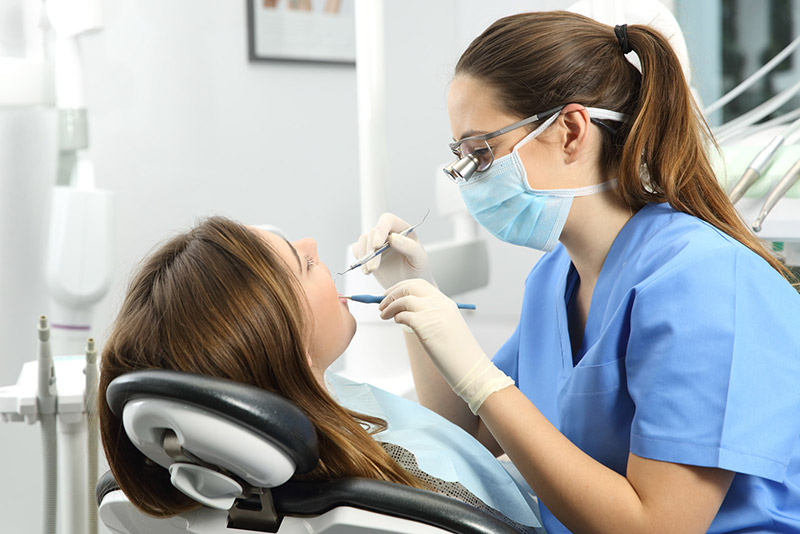Your Ultimate Guide to Finding the Best Oral Surgeon Near You
Your Ultimate Guide to Finding the Best Oral Surgeon Near You
Blog Article

When it comes to oral health, finding the right oral surgeon is crucial. Whether you're in need of a wisdom tooth extraction, dental implants, or corrective jaw surgery, having a skilled and experienced oral surgeon by your side is essential for a successful outcome. But with so many options available, how do you find the best oral surgeon near you? In this comprehensive guide, we'll walk you through everything you need to know to make an informed decision.
First and foremost, start by asking for recommendations from your dentist, family members, friends, or colleagues. Personal referrals can provide valuable insights into the quality of care provided by a particular oral surgeon. Additionally, you can check online reviews and testimonials to gather more information about the experiences of other patients.
Once you have a list of potential oral surgeons, it's time to do some research. Look for information about their credentials, experience, and areas of expertise. Board certification is an important factor to consider, as it indicates that the oral surgeon has met rigorous standards of training and skill. You should also inquire about their education, training, and any specialized certifications they may have.
When evaluating oral surgeons, pay attention to their experience performing the specific procedure you require. For example, if you need dental implants, look for an oral surgeon who has extensive experience in implant dentistry. Similarly, if you're considering corrective jaw surgery, choose a surgeon who specializes in orthognathic surgery.
Next, consider the location and convenience of the oral surgeon's practice. Ideally, you'll want to find a surgeon who is located near your home or workplace, making it easier for you to attend appointments and follow-up visits. Additionally, inquire about the availability of appointments and whether the surgeon offers flexible scheduling options to accommodate your needs.
During your initial consultation with a potential oral surgeon, take the time to ask questions and discuss your concerns. Pay attention to how the surgeon communicates and whether they take the time to listen to your needs. A good oral surgeon will take the time to explain your treatment options, answer your questions, and address any concerns you may have.
Cost is another important factor to consider when choosing an oral surgeon. While it's essential to find a surgeon who offers high-quality care, you also need to consider your budget. Inquire about the cost of the procedure, as well as any financing options or payment plans that may be available. Keep in mind that while cost is important, it shouldn't be the only factor you consider when making your decision.
Finally, trust your instincts. If you feel comfortable and confident in a particular oral surgeon, that's a good sign that they may be the right choice for you. On the other hand, if you have any doubts or reservations, it's okay to continue your search until you find a surgeon who meets your needs and makes you feel confident in your decision.
In conclusion, finding the best oral surgeon near you requires careful research and consideration. By asking for recommendations, researching potential surgeons, evaluating their experience and credentials, considering the location and convenience of their practice, discussing your concerns during a consultation, considering the cost of the procedure, and trusting your instincts, you can make an informed decision and find a skilled and experienced oral surgeon who will provide you with the high-quality care you deserve.
General FAQs
What does an oral surgeon do?
Oral surgeons specialize in performing surgical procedures related to the mouth, jaw, and facial regions. They are trained to diagnose and treat a wide range of conditions, including impacted wisdom teeth, dental implants, corrective jaw surgery, oral pathology, and facial trauma. Oral surgeons undergo extensive education and training, which typically includes four years of dental school followed by several years of residency training in oral and maxillofacial surgery.
How do I know if I need to see an oral surgeon?
If you are experiencing dental issues that require surgical intervention, your dentist may refer you to an oral surgeon for further evaluation and treatment. Common reasons to see an oral surgeon include impacted wisdom teeth, missing teeth requiring dental implants, misaligned jaws requiring corrective surgery, oral lesions or tumors, facial trauma, and obstructive sleep apnea. However, it's essential to consult with your dentist or physician to determine if oral surgery is the best course of action for your specific needs.
What should I look for when choosing an oral surgeon?
When selecting an oral surgeon, consider factors such as their education, training, experience, and areas of expertise. Look for a surgeon who is board-certified and has a proven track record of success in performing the type of procedure you require. Additionally, consider the location and convenience of the surgeon's practice, their communication style, and whether they offer financing options or payment plans to accommodate your budget.
Is oral surgery painful?
While the thought of undergoing oral surgery can be intimidating, advances in anesthesia and pain management techniques have made the experience much more comfortable for patients. Your oral surgeon will discuss the type of anesthesia or sedation options available for your procedure, ensuring that you are as comfortable as possible throughout the process. After surgery, you may experience some discomfort or swelling, but your surgeon will provide instructions for managing pain and promoting healing.
What can I expect during the recovery period?
The recovery period following oral surgery varies depending on the type and complexity of the procedure. Your oral surgeon will provide specific instructions for post-operative care, including how to manage pain, swelling, and any dietary restrictions or activity limitations. It's essential to follow these instructions closely to ensure a smooth recovery and optimal results. Your surgeon will schedule follow-up appointments to monitor your progress and address any concerns you may have during the healing process.